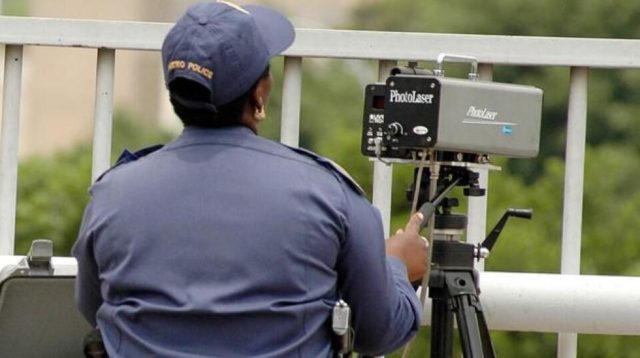It took precedence from a previous case which set out the requirements to be met when questioning an accused to establish his guilt on a charge of exceeding the general speed limit.
A FREE State father who didn’t realise how fast he was driving as he had been “singing in the bakkie” with his son, has had his conviction and sentence set aside.
Pieter du Plessis was accused of driving 164km/h in a 100km/h zone.
He was sentenced in a magistrate’s court to R12,000 or 2 months’ imprisonment of which R8,000 or 1 month imprisonment was suspended for a period of 5 years with conditions.
During an automatic review of the proceedings, the high court brought up transcripts of the lower court proceedings.
It read: “Court: May someone exceed the speed limit of 100km/h on that particular portion of the road being route R30?
Accused: No, Your Worship.
Court: Okay, then why did you do it?
Accused: To tell you the truth me and my boy were coming from Klerksdorp, we were singing in the bakkie and I did not realise the speed, so I am guilty.
Court: Is that an excuse for you to exceed the speed limit?
Accused: No, Your Worship.”
The high court went on to poke several holes in the way the case was handled in the lower court, including finding inadequacy in the questioning of the accused.
It took precedence from a previous case which set out the requirements to be met when questioning an accused to establish his guilt on a charge of exceeding the general speed limit.
“A radar is a measuring instrument. lt is, to state the obvious, a machine, and machines malfunction if not properly maintained.
The precision of the radar is, like most measuring instruments, dependent on how regularly it is calibrated. If it is not calibrated regularly, as per the instructions of its manufacturer, it will malfunction.
“It is therefore important for the judicial officer to inquire from an unrepresented accused whether s/he admits that the device was functioning properly at the relevant time and whether the calibration certificate was shown to him/her.
“If it was not shown to him/her, s/he must be asked whether s/he admits that it was calibrated as required. An accused should also be asked whether s/he admits that the officer who operated the device had been properly trained to do so. lt was not done in this matter,” read the previous judgment.
As a result, the high court last Wednesday ruled: “It is clear from the transcript that no enquiry was made by the learned magistrate to establish whether the accused admits that at the time of the incident the speed measuring device was functioning properly, the calibration certificate was shown to him and that the officer who operated the device had been properly trained to do so … In the circumstances I make the following order: The conviction and sentence are set aside.”
Cape Times








